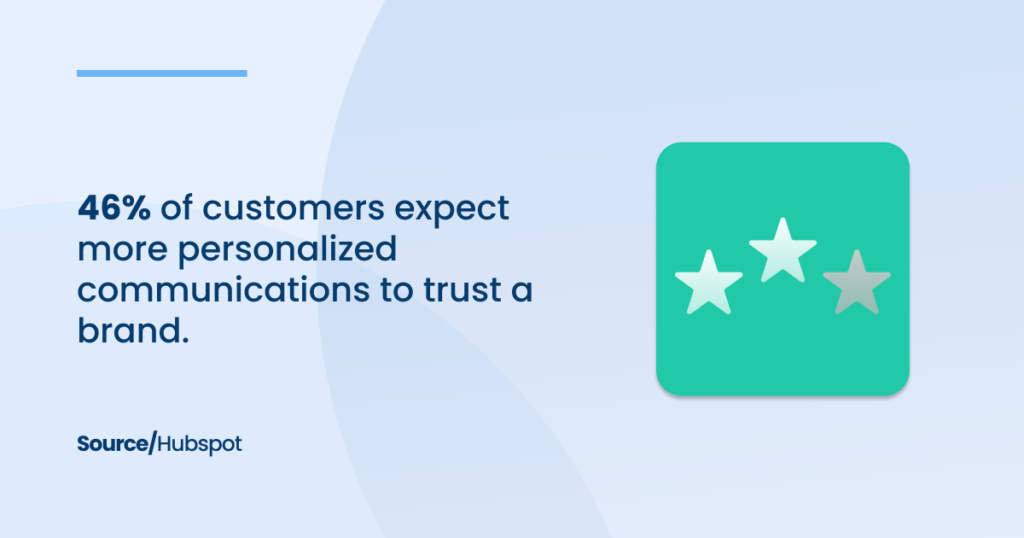The marketing landscape constantly evolves, with fresh trends, technologies, and strategies emerging regularly.
To remain competitive, staying updated with the latest marketing statistics is essential.
Why? As consumers increasingly demand seamless and personalized experiences across all touchpoints. To meet these expectations, businesses must adopt an omnichannel marketing strategy.
In support of this shift, the global loyalty management market size was valued at USD 11.71 billion in 2023, highlighting the growing emphasis on strategies that foster customer loyalty through comprehensive engagement.
Source: Loyalty Management Market Size, Fortune Business Insights
To effectively navigate and implement complex strategies, many businesses are turning to a Fractional CMO Agency that provides expert marketing leadership tailored to their specific needs without the commitment of a full-time executive.
This article will explore the reasons for an omnichannel marketing strategy, the benefits of providing a unified customer experience, and the importance of data-driven decision-making in the digital age.
What is Omnichannel Marketing?
Omnichannel marketing refers to integrating various online and offline channels to provide a seamless and consistent customer experience throughout the customer journey.
Source: Global Omnichannel Retailing Market Share, 2023
A successful omnichannel digital marketing strategy involves synchronizing messaging, branding, and sales strategies across multiple platforms to ensure that customers receive a unified brand experience no matter how or where they interact with the brand.
This strategy extends beyond digital channels to include physical interactions, creating a comprehensive customer experience that leverages every touchpoint as an opportunity for engagement.
By implementing an omnichannel digital marketing strategy, businesses can collect valuable insights into customer behaviors and preferences, which can be used to refine marketing efforts further and enhance customer relationships.
Utilizing a CMO as a service can provide the expert oversight needed to ensure these strategies are effectively executed and continuously optimized.
How It Differs from Multichannel Marketing
While both omnichannel and multichannel marketing involve interacting with customers through multiple channels, the key difference lies in the integration and consistency across these channels.
Multichannel marketing might involve using several channels but often operates them in silos, meaning that the customer experience can vary significantly from one channel to another.
Understanding what is a fractional CMO can be crucial in this context, as such a role focuses on strategically integrating these various channels to ensure a unified and consistent customer experience across all touchpoints.
In contrast, an omnichannel strategy strives for complete integration across all channels. Every part of the customer’s experience—from online browsing to in-store purchasing—is designed to be cohesive and supportive of the overall journey.
An omnichannel marketing strategy aims to provide multiple touchpoints and ensure they are completely aligned, presenting a consistent brand message and facilitating a smoother transition from one channel to the next.
The Importance of Omnichannel Marketing in Today’s Market
In the digital era, where consumer preferences rapidly evolve and the competition continually adapts, the significance of an omnichannel marketing strategy cannot be overstated.
Such strategies meet and exceed customer expectations, harnessing the power of various channels to deliver a consistent and personalized brand experience.
Meeting Customer Expectations
Today’s consumers expect seamless interactions with brands, regardless of the channel or platform they use. This demand spans social media interactions, online shopping, in-store visits, and customer service calls.
However, customer expectations are continuously evolving. A survey reveals that 22% of leaders find it challenging to grasp customer needs, while 21% struggle to keep up with the growing demands of these expectations.

An effective omnichannel marketing strategy ensures that the customer journey is fluid across all these channels, providing a seamless transition that enhances the overall experience and satisfaction.
Integrating all operational touchpoints achieves a truly seamless customer experience. This integration involves synchronizing data and workflows across channels to ensure that information flows freely and accurately.
For instance, if a customer adds a product to their cart via a mobile app, this item should be visible when they switch to browsing on a desktop or even when speaking to a customer service representative. This level of integration significantly enhances the customer’s experience, boosting satisfaction and loyalty.
Enhancing Competitive Differentiation Through Omnichannel Strategies
Omnichannel marketing meets customer demands and sets a brand apart from its competitors.
This competitive differentiation is achieved by delivering a customer experience that is not only seamless but also superior in personalization and responsiveness compared to what competitors offer.
Source: MCKinsey&Company
Furthermore, the role of a Fractional CMO can be instrumental in devising and implementing an effective omnichannel strategy.
A Fractional CMO brings seasoned leadership and specialized expertise in omnichannel approaches as a service, helping businesses to strategically align their marketing efforts with business goals without the overhead of a full-time executive.
Critical Components of a Successful Omnichannel Strategy
To excel in the digital age, businesses must adopt an integrated approach that encompasses various aspects of marketing and customer engagement.
Data Integration and Analytics
A robust omnichannel marketing strategy hinges on seamless data integration across all platforms and touchpoints. This integration gives businesses a holistic view of the customer journey, from online interactions to brick-and-mortar store visits.
By leveraging data integration and advanced analytics, companies can:
- Perform comprehensive market segmentation analysis to understand consumer groups and tailor marketing efforts accordingly.
- Utilize consumer behavior analytics to track and analyze how customers interact with the brand across various channels, providing insights into preferences and behaviors.
- Capture and analyze data from multiple channels to optimize lead generation and ensure targeted and efficient marketing efforts.
These analytics help in understanding the nuances of customer needs and crafting strategies that meet and exceed customer expectations, enhancing overall customer satisfaction.
Consistent Brand Messaging Across Channels
To ensure a consistent brand experience, it is crucial that all messaging and communication across channels remain uniform. This consistency helps build a strong brand image that resonates well with the target audience, reinforcing brand values and messaging.

Effective omnichannel strategies require integrated marketing solutions that ensure all content, whether on social media, online platforms, or physical advertisements, aligns with the overall brand ethos and campaign goals.
Technology and Tools for Omnichannel Success
The right technologies and tools are vital for executing an effective omnichannel strategy.
They enable the integration and automation of marketing processes, making it easier to reach customers at the right time, on the right channel, and with the right message.
Essential Technologies for Omnichannel Marketing
Several technologies are critical for developing and maintaining an effective omnichannel marketing strategy:
- Customer Relationship Management (CRM) Systems are essential for managing detailed information on customer interactions across all channels, helping businesses personalize communication and enhance customer relationships.
- Lifecycle Marketing Automation: This technology automates communications based on specific customer lifecycle stages, ensuring that customers receive relevant messages that can lead to higher engagement and conversion rates.
- Data-Driven Personalization Tools: These tools use collected data to tailor experiences and content to individual preferences and behaviors, which is crucial for enhancing the personal connection between the brand and the customer.
By integrating these technologies into their operations, businesses can streamline their marketing efforts and create more targeted and effective campaigns that resonate with their audience.
Leveraging AI and Machine Learning for Enhanced Personalization
Artificial intelligence (AI) and machine learning are game-changers in omnichannel marketing, offering capabilities that significantly enhance personalization.
Statista highlights that the Machine Learning market is projected to reach US$79.29bn in 2024.

Incorporating AI and machine learning into an omnichannel strategy provides a competitive edge in terms of customer engagement and satisfaction and significantly enhances the overall effectiveness of marketing efforts.
Challenges in Omnichannel Marketing
Implementing an omnichannel marketing strategy can significantly enhance a brand’s reach and customer satisfaction levels, yet it presents challenges that businesses must skillfully navigate.
Understanding these challenges and strategizing effectively to overcome them is crucial for the success of any omnichannel initiative.
Overcoming Common Obstacles
One of the fundamental challenges in executing an omnichannel digital marketing strategy is the presence of data silos within an organization.
Data silos occur when different departments or divisions within a company maintain their own sets of data that are not accessible to other parts of the business. This lack of integration can severely hamper providing a seamless customer experience, as vital information about customer interactions might be isolated and unavailable to those who need it.
To effectively address data silos, companies need to implement integrated systems that allow data to flow freely across all channels and touchpoints. This involves upgrading IT infrastructure and possibly adopting new software solutions that support better data integration.
Lead generation optimization can also suffer from data silos if customer information captured online is not available for offline follow-ups, thereby necessitating robust systems that synchronize data across all platforms.
Maintaining Brand Consistency
Maintaining a consistent brand message across multiple platforms and channels presents another significant challenge in omnichannel marketing. Each channel often has its own dynamics and customer expectations, which can lead to disparate messaging if not carefully coordinated.
To maintain brand consistency, organizations must develop a clear brand guideline that outlines how to communicate the brand across different channels. This includes consistent use of logos, brand colors, messaging tone, and overall communication style.
Training all marketing teams on these guidelines ensures that customers receive the same brand experience whether they interact with the brand through social media, a mobile app, or a physical store.
Legal and Ethical Considerations
Omnichannel strategies typically involve collecting and analyzing large amounts of customer data, so they must be designed to comply with various privacy laws, such as GDPR in Europe or CCPA in California.
These laws regulate how businesses collect, store, and use personal information, and failing to comply can result in hefty fines and damage to the company’s reputation.
Navigating these privacy laws requires a deep understanding of the legal landscape and how it applies to marketing practices.
Businesses need to ensure that their data collection methods are transparent and obtain proper consent from customers before gathering their data.
Additionally, they must provide customers with options to view, edit, or delete their personal information, adhering strictly to legal standards.
Ethical Issues in Personalized Marketing
Personalized marketing, a key component of omnichannel strategies, involves tailoring marketing messages to individual consumers based on their previous interactions with the brand.
While effective, this approach raises ethical concerns, particularly regarding customer privacy and the potential for manipulation.
To address these ethical issues, companies must balance personalization and customer privacy.
This involves transparency about how customer data is used and ensuring that personalization strategies respect customer boundaries and preferences. It is also essential to implement ethical guidelines that govern how personalization is applied, focusing on enhancing the customer experience without overstepping.
The Future of Omnichannel Marketing
As technology evolves and consumer preferences shift, the landscape of omnichannel marketing is also set to transform.
Understanding these changes and preparing for the future is essential for businesses aiming to maintain competitive advantage and deliver a seamless customer experience.
Emerging Trends and Predictions
Omnichannel marketing strategies are continually adapting to new technologies and market dynamics. Here are several emerging trends that are shaping the future of this field:
- Enhanced Integration of AI and Machine Learning: Artificial intelligence and machine learning are becoming increasingly sophisticated, enabling more personalized customer interactions and accurate predictive analytics.
These technologies are expected to drive the development of smarter, more responsive omnichannel systems that can anticipate customer needs and automate tailored marketing messages.
- Augmented and Virtual Reality Experiences: As AR and VR technologies become more accessible, they will likely play a significant role in omnichannel marketing strategies.
These tools can offer immersive shopping experiences that bridge the gap between online and physical retail spaces, providing a seamless experience that enhances customer engagement and satisfaction.
- Voice and Visual Search: With the rise of smart speakers and visual search technologies, voice and image recognition are set to become integral components of the omnichannel approach.
These technologies allow for more natural interaction with devices and platforms, smoothing the customer journey across different channels.
- Blockchain for Enhanced Transparency and Security: Blockchain technology could revolutionize omnichannel marketing by providing greater transparency and security in customer transactions and data management.
This could enhance trust and reliability in omnichannel platforms, encouraging more consumers to engage across multiple channels.
- Sustainability and Ethical Marketing: Consumers are increasingly looking for brands that align with their values, including sustainability.
Omnichannel strategies must integrate these values into their campaigns and ensure that their practices across all channels reflect a commitment to ethical and sustainable business.
Predicting Consumer Behavior and Technological Advances
Predicting shifts in consumer behavior and technological advancements is crucial for the ongoing relevance of an omnichannel marketing strategy. Here’s what businesses should consider:
- Consumer Demand for Authenticity and Transparency: Modern consumers expect brands to be authentic and transparent in their marketing efforts. This includes clear communication about product sourcing, brand values, and pricing.
An omnichannel approach makes it easier for businesses to consistently convey their authenticity across all customer touchpoints.
- Increased Use of Marketing Automation Tools: As businesses strive to provide personalized experiences at scale, marketing automation tools will become more prevalent.
These tools help manage complex campaigns that span multiple channels, ensure consistent messaging and branding, and gather data to further refine marketing efforts.
- Integration of Customer Lifetime Value Models: Understanding and integrating customer lifetime value (CLV) into omnichannel strategies will become more common.
Businesses can better allocate resources to the most profitable channels and customer segments by focusing on CLV, enhancing overall efficiency and effectiveness. - Role of the Fractional CMO: The complexity of managing an evolving omnichannel strategy might encourage more businesses to turn to a Fractional CMO.
This role can provide the expertise needed to navigate emerging trends and incorporate new technologies into existing marketing frameworks without the commitment of a full-time executive.
Partner with [A] Growth Agency for Your Omnichannel Marketing Strategies
Omnichannel marketing represents a tactical approach and a fundamental shift in how businesses engage with consumers across multiple platforms and touchpoints.
This strategy is essential for creating a seamless and integrated customer experience that meets the evolving expectations of today’s digital-savvy consumers.
Given the complexities and demands of developing and maintaining robust omnichannel strategies, forming a strategic partnership can be highly beneficial.
[A] Growth Agency will provide your business with the expertise and technology necessary to implement sophisticated omnichannel solutions. We specialize in turning entrepreneurial dreams into reality with effective, tailored growth strategies.
Moreover, we treat every business as a unique entity. Our strategies are tailor-made, and we’re not afraid to experiment to find the best path forward.
Remember, excellence is our standard and should tell you a lot.
Then?

